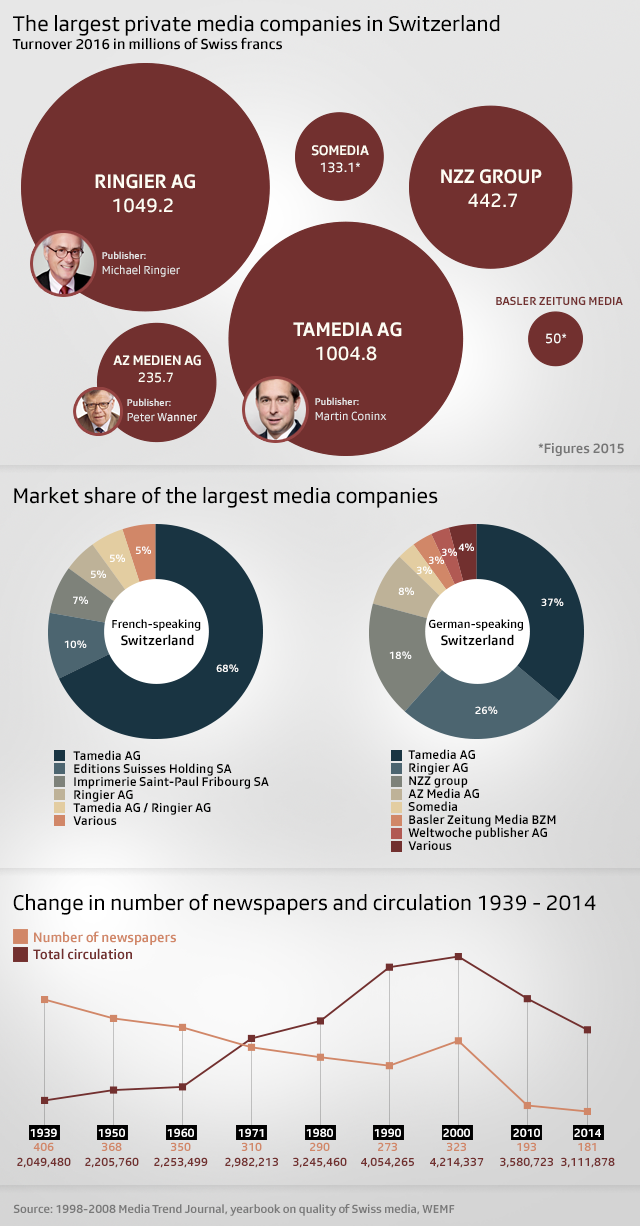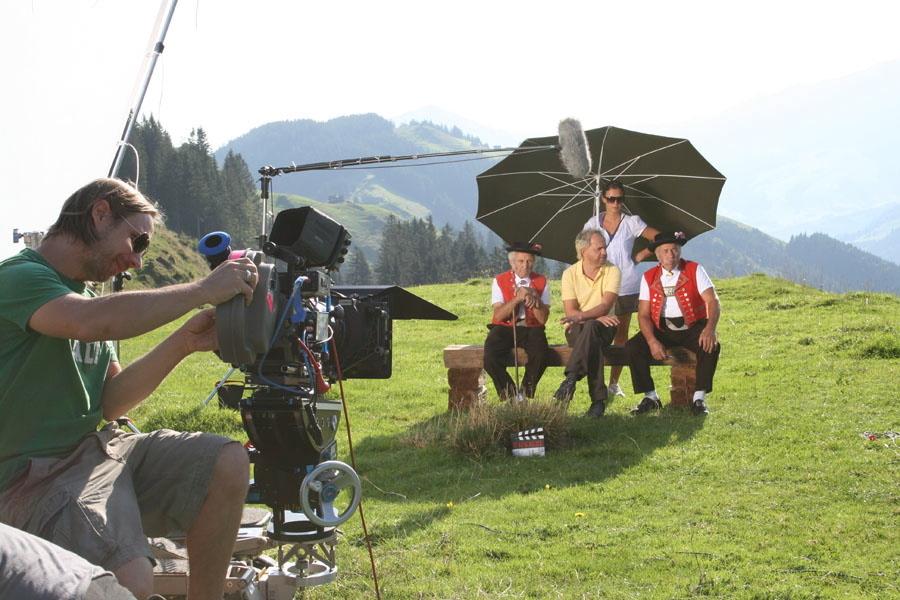Drastic changes shake Swiss media landscape

Tamedia, Switzerland’s biggest private media company, has announced that its 14 different newspapers will soon be produced by only two editorial offices. At the same time, businessman Christoph Blocher has taken over 25 free newspapers in one fell swoop.
On 23 August, Tamedia dropped the bomb. It made public that in future only two editorial offices, one for the German-speaking and one for the French-speaking region, would produce its 12 dailies and two weeklies. The reason is the significant drop in the number of ad sales as well as subscriptions in the print sector.
What exactly does this mean? From 2018 onwards, Tamedia’s newspapers will uniformly inform a readership of around one million people about Swiss politics, foreign affairs, economics and sport. Only the local news sections will remain independent. Tamedia has stressed that this move would not result in redundancies, but would increase the efficiency of the company.
This is the latest chapter in the decade-long process of what can be seen as the death of Swiss newspapers (see graphic below).

Zurich-based Tamedia is not alone in this though. Ringier, the NZZ, AZ Media (which covers Aargau and northwest Switzerland), Basler Zeitung Media as well as Somedia (for southeast Switzerland) want their share of the Swiss media pie.
Balance threatened
Tamedia’s move has alarmed critics. “We will have identical reporting from Winterthur to Interlaken. This makes it uniform and not democratic at all,” political scientist Mark Balsiger told Swiss public radio SRF.
He also criticised Tamedia – as many other Swiss media companies – for doing highly profitable business with digital sales platforms, and not using the profits for high quality and expensive print journalism. “Over the past ten years, Tamedia has distributed more than CHF500 million ($520 million) to its shareholders and management. If they had only spent a small amount on quality journalism, the situation would be different today,” said Balsiger.
Daniel Eckmann, former government minister spokesman and former deputy director general of the Swiss Broadcasting Corporation, is also worried. “Every weight in a democracy needs a counterweight,” he told swissinfo.ch. So if the media gets less diverse, the carefully balanced democratic structure will collapse. The reason for this is that diverse opinions, which are a big part of democracy, are better shaped by a diverse media landscape, experts agree.
This text is part of #DearDemocracy, a platform on direct democracy issues, by swissinfo.ch.
Debating the best idea or better argument provides Swiss voters with a good basis to form their own opinions and make well-informed decisions at the ballot box.
Blocher: long-desired goal
Before Tamedia made its announcement, businessman and former politician Christoph Blocher had been hogging the headlines. The chief strategist of the conservative-right Swiss People’s Party used the Basler Zeitung Media, of which he owns one third, to buy Zehnder Media AG.
The ‘silverware’ of the family-owned publishing house are 25 free local newspapers. With this purchase, Blocher gained 800,000 new readers in one fell swoop. Along with the Basler Zeitung – and the Weltwoche newspaper, which shares his isolationist vision of Switzerland – Blocher has now superseded the million mark when it comes to readership figures.
14 newspapers, 2 editorial offices
Tamedia promises that all its papers will remain independent.
Der Bund and the Berner Zeitung will continue to be published in Bern.
The two main editorial offices will be in German-speaking and French-speaking Switzerland and will provide the content for Swiss politics, foreign affairs, economics and sport. Investigative stories will also be done by the main offices. Only the local and regional sections of the papers will remain independent.
Each of the two editorial offices will be managed by a separate editor-in-chief. All newspapers will keep their own editor-in-chief.
These changes will be introduced in 2018.
SWI swissinfo.ch is part of the Swiss Broadcasting Corporation and receives half of its funding from the government.
Translated from German by Billi Bierling

In compliance with the JTI standards
More: SWI swissinfo.ch certified by the Journalism Trust Initiative













You can find an overview of ongoing debates with our journalists here . Please join us!
If you want to start a conversation about a topic raised in this article or want to report factual errors, email us at english@swissinfo.ch.